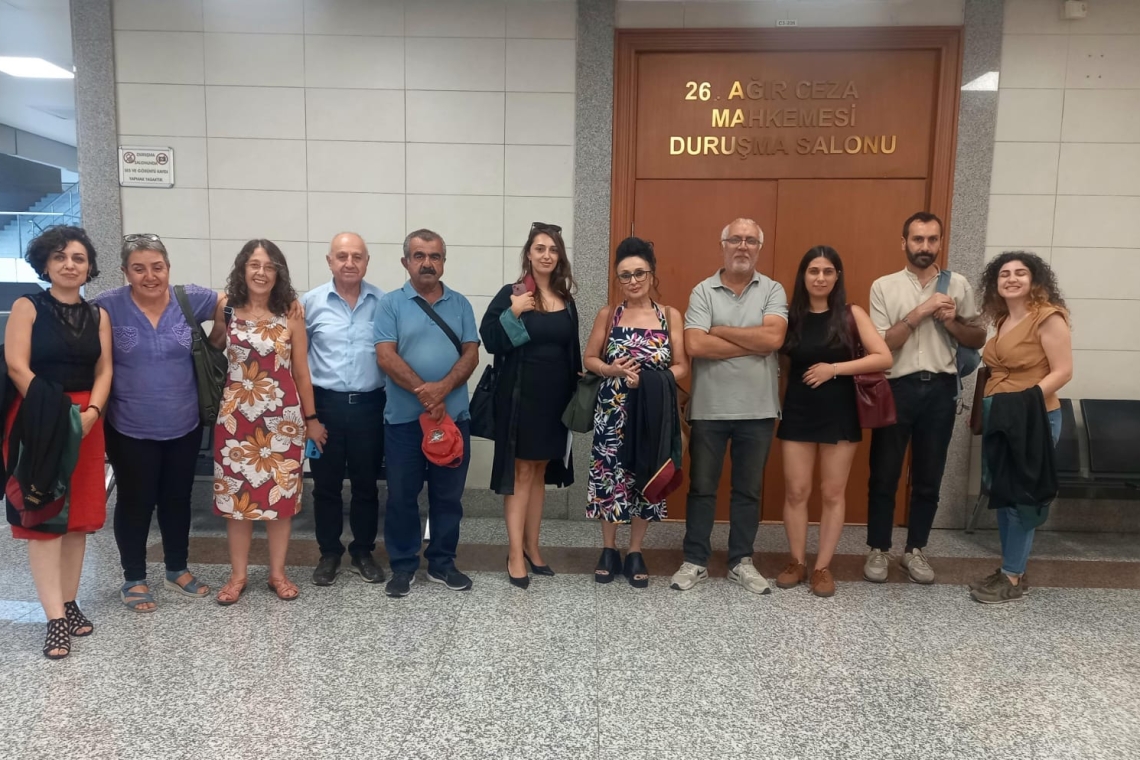EYLEM SONBAHAR
Selahattin Okçuoğlu, a member of the Human Rights Association (İHD) in Turkey, was sentenced to 1 year and 3 months in prison for "making terrorist propaganda" based on two social media posts he shared in early July 2024. The ruling was issued at the second hearing of his trial, held at the Istanbul 26th High Criminal Court.
The court deferred the announcement of the verdict, meaning the sentence will not be enforced unless Okçuoğlu commits another offense within a specified period.
Okçuoğlu was prosecuted for posts shared on July 5 and July 7, 2024, which the prosecution argued constituted propaganda on behalf of an outlawed organization. Turkish authorities frequently apply such charges under anti-terrorism laws to individuals sharing content related to Kurdish political issues or groups linked to the banned Kurdistan Workers' Party (PKK), which has waged an armed insurgency against the Turkish state since the 1980s.
During the hearing, Okçuoğlu and his lawyers were present. The prosecutor repeated the final opinion submitted at the previous session, requesting that Okçuoğlu be convicted.
In his defense statement, Okçuoğlu said: “As human rights defenders, we always stand for peace. My posts were news content. None of them promote violence. I request to be acquitted.”
His lawyer, prominent human rights attorney Eren Keskin, also rejected the prosecutor's argument. “There is no praise of any act by the organization in these two posts. These were not even his personal opinions but news content. Perhaps 10 people saw them. That’s why we request an acquittal.”
Another defense lawyer, Zeynep Ceren Boztoprak, argued that issuing a sentence would violate the principle of legality in criminal law and also called for Okçuoğlu's acquittal.
After a brief recess, the court announced its decision, sentencing Okçuoğlu to 1 year and 3 months in prison for “making terrorist propaganda,” but deferred the verdict's announcement. This legal mechanism in Turkish law allows for the suspension of the sentence, provided the defendant does not commit a similar offense in the future.



